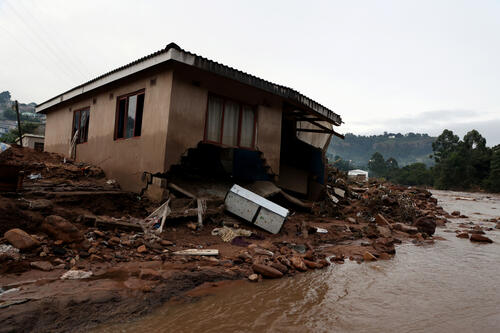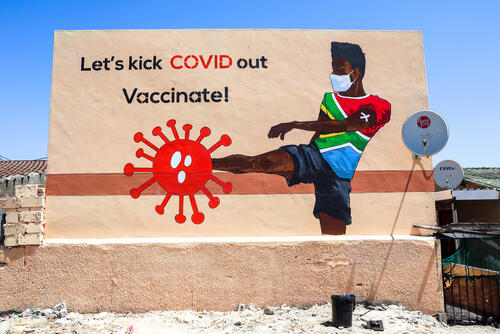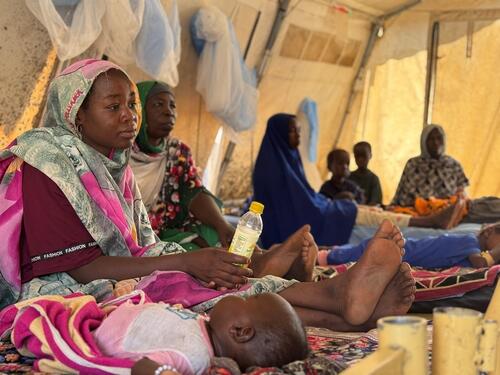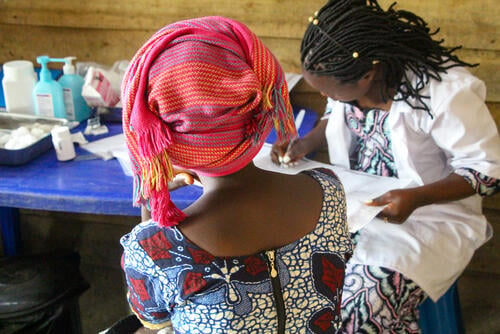Following catastrophic flash flooding in KwaZulu-Natal Province, South Africa, Médecins Sans Frontières (MSF) has observed that vulnerable communities and health facilities are facing a crisis of clean water provision and adequate sanitation. Major district hospitals and dozens of health clinics are currently without water after floods damaged water supply systems.
Approximately 40,000 people have been left homeless and a large number of displaced people have been sheltering for days in more than 20 schools, community halls and churches in the eThekwini region around Durban – few of which have access to running water, electricity or adequate sanitation for the hundreds of people sheltering there.
Many of the displaced people lost all their possessions including their chronic disease medications, especially for HIV, TB, diabetes and hypertension, in the floods. They are now struggling to access health services due to the scale of infrastructural damage, and steep challenges of daily survival.
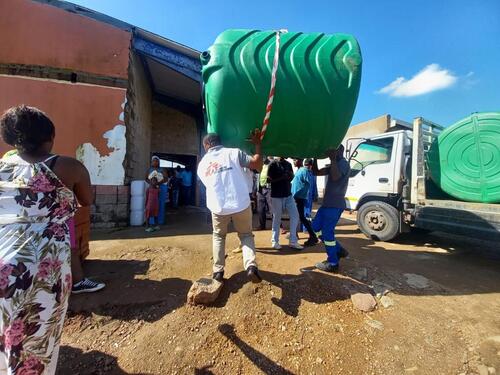
“The city remains in crisis 10 days after the storm, and it is now primarily a crisis of water and sanitation provision – to hospitals, clinics and communities,” says Dr Mani Thandrayen, MSF medical team leader in Durban. “Failure to get this right could spell a deepening health crisis, characterised by water-borne diseases.”
Our teams have supported four community shelters since the Easter weekend, helping to meet the immediate needs of residents, which include food, water, cookware, blankets, mattresses and other basic items. Our teams have also distributed food and blankets, mattresses, cookware and basic hygiene products for 500 people and provided kitchen appliances at community shelters.
To guard against disease outbreak in the aftermath of the floods, we have installed 25 portable toilets at three shelters, and provided four water tanks for potable water storage.
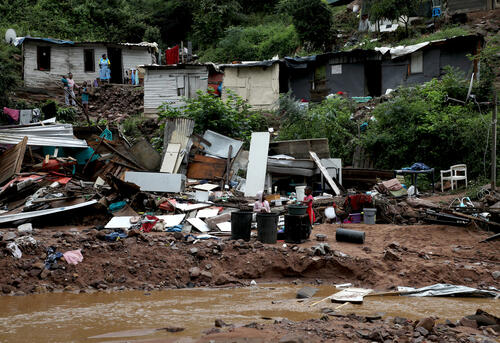
During our team’s first community visits it became apparent that many traumatised people were reeling from the loss of family members and their homes and are in need of counselling. Registered counsellors working for MSF, as well as several MSF doctors and nurses, have since joined mobile health clinics under the management of the provincial and municipality health departments. In the coming days these teams will aim to bring health services to all shelters across the municipality.
We will continue providing punctual support to clinics and shelters needing water and sanitation, and are working with the authorities to explore the possibility of water treatment solutions and the drilling of community boreholes.
MSF has had a long presence in South Africa and has run many projects focusing on HIV/TB, sexual gender-based violence and COVID-19. In KwaZulu-Natal, we currently run a TB project in Eshowe. We have also stepped in to assist in the province during emergencies on several occasions. During the week of unrest in KZN and Gauteng in July 2021, MSF provided emergency support to communities and health facilities affected by the violence, and during the peak of COVID-19, we provided oxygen concentrators to a local hospital in Pietermaritzburg to ensure that severe COVID-19 patients were supported.



